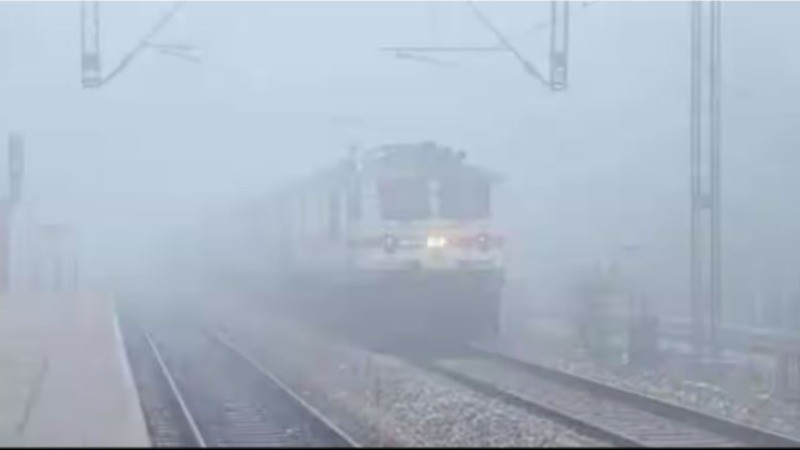
New Delhi: Christmas morning in the capital city of New Delhi began with dense fog and extremely low visibility, causing significant disruptions to train schedules. A total of 20 trains were delayed, including major services like the Mumbai Central Rajdhani Express and the Dakshin Express. Travelers faced delays as the weather compounded logistical challenges.
The delays affected several prominent routes. The Mumbai Central Rajdhani Express running between New Delhi and Mumbai, the Durg-Hazrat Nizamuddin Express from Durg to Delhi, and the Dakshin Express from Delhi to Hyderabad were among the impacted trains. Other affected services included the Duronto Express and the Jabalpur-Hazrat Nizamuddin Gondwana Express.
The Indian Meteorological Department reported a city temperature of 10°C, while visibility dropped to a mere 100 meters at 5:30 a.m. due to the dense fog.
Rainfall on December 24 had intensified the winter chill, further affecting the city's daily life. As Delhi grapples with the twin challenges of harsh winter and pollution, citizens hope for better solutions to address these recurring issues.
Air Quality Remains a Major Concern
Delhi’s air quality continues to be a pressing issue, with the Air Quality Index (AQI) recorded at 334 in the 'very poor' category as of 6 a.m., showing slight improvement compared to the previous day's 398. Rainfall on Tuesday evening provided a brief reprieve, improving the AQI to 358 and leading to the suspension of Stage IV restrictions under the Graded Response Action Plan (GRAP).
Air Travel Disruptions Due to Fog
The dense fog has also disrupted air travel. Delhi airport authorities have issued an advisory cautioning that flights not equipped with CAT III systems could experience delays. Passengers are urged to check with their respective airlines for the latest updates. The CAT III system is a specialized technology designed to ensure safe aircraft landings during periods of extremely low visibility caused by severe fog.
Despite this temporary relief, pollution remains a challenge. Two air monitoring stations reported 'severe' air quality levels, while most others fell into the 'very poor' category. The city’s residents are still grappling with the health and environmental impacts of persistent pollution.
Authorities remain vigilant about both the weather and pollution, emphasizing the need for precautions during this period of dense fog and poor air quality. Travelers and residents are advised to stay updated on changing conditions and take necessary measures to safeguard their health and safety.